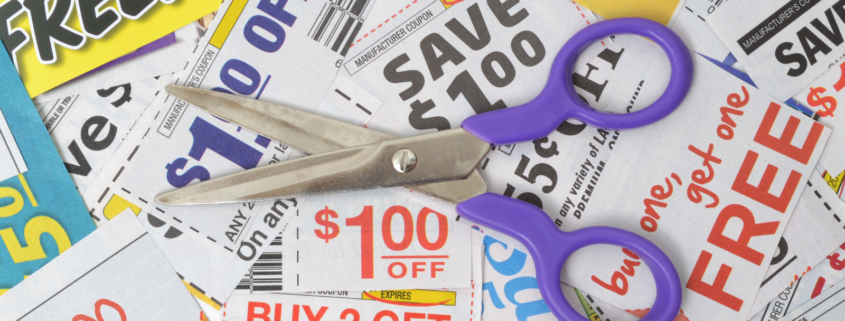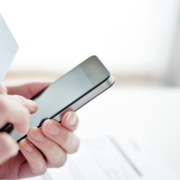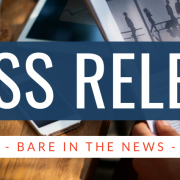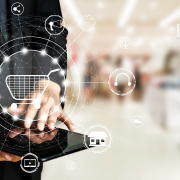The Retail Industry Is Ready For A Revolution In Couponing
‘A total of 167 billion coupons were distributed to US consumers in the first six months of 2011, according to the research firm NCH Marketing Services, and the value of redeemed coupons rose 5.3 percent to $2 billion. But it’s not your grandmother’s Sunday newspaper coupon clipping anymore. Websites with names like Southern Savers, livefabuless.com or thekrazycouponlady.com give consumers an edge on how to find the the right discounts in the art of “couponing,” which has evolved into a verb.’ BARE shares an article by Jonathan Treiber for Forbes on the humble coupon, which in the past gave consumers a few cents off soap or cereal , that has now mushroomed into a lifestyle for millions of Americans with its own television programs, websites and trading platforms.
‘Since the dawn of the internet, every corner of commerce has been in a constant state of reinvention as new technologies are leveraged to optimize the buying and selling experience. We’ve seen targeting and customer communications efforts streamlined and revolutionized, in-store and e-commerce customer experiences completely overhauled, and breakthroughs in logistics and inventory management that have transformed how products are delivered. Yet for the past 100 years, this digital transformation has mostly missed the couponing arena—until now.
Coupons are sort of a dirty secret in the retail and CPG space, akin to understanding where meat comes from. Those who are aware of the process of clearinghouses, the disconnects between manufacturer and retailer, and all the inefficiencies that exist in between those entities understand how broken this antiquated system is, yet nothing transformative has risen above the fray to disrupt it. We may be entering a revolutionary time for coupons and promotions, however, and COVID-19 may be the engine that drives this tide change.
How COVID is Creating the Conditions for Change
It always feels unsavory to discuss silver linings in a global pandemic, particularly when it comes to commerce and a retail industry that has seen so much decimation over the last year. The changes that the industry has had to undergo as a result of COVID-19, however—namely the push towards contactless payments—has presented an opportunity for evolution that may disrupt a corner of the industry that has needed disruption for decades.
The central question that has plagued retail for as long as I’ve been involved in the industry roughly boils down to: Why can’t I do a coupon on a mobile phone?
It’s a simple question, and a fair one. Why has it taken decades, to little avail, for retailers to deliver customers coupons to their phones that they can scan at a store and receive their discount? The answer to a simple question is often simple itself: there is an investment in hardware required for retailers to be able to scan phones to redeem coupons. The back-end technology is there, but without point-of-sale technology capable of translating the coupon, it’s nearly impossible to reach mass adoption. Some retailers have made the investment, and have been able to institute these next-gen promotions strategies, but the rate of adoption is minimal.
The pandemic has forced retailers’ hands to invest in new point of sale technology for the purposes of contactless payments. With a greater emphasis on safety, the old way of doing business through cash or card transactions is being phased out. This rise in contactless payments is also seeing a rise in customer reliance on digital wallets and smartphones as the principal source of payment.
We’re at an inflection point of smartphone technology, digital security, and point of sale investment that is creating the conditions for mobile couponing to take the leap into the 21st Century. And the ramifications for this transformation will be monumental for retailers—but not retailers alone.
How This Revolution Can Impact CPG Brands
Consumers have been trying to use manufacturers’ coupons on their mobile phones for years; this has led to the proliferation of consumer services such as a Barter, Checkout 51, Fetch Rewards, and other services that are providing workarounds for both mobile usage and retailer acceptance. Typically these services take the form of a consumer rebate or cashback, not an actual coupon discount deducted at point of sale. Still, consumers are so desperate for mobile incentives that they are willing to scan miles of printed receipts in order to receive a 50 cent or dollar incentive.
Consumers are leading the charge and making demands on CPGs and retailers alike; they want a frictionless experience at check out, coupled with the public health benefits of not having to touch plastic, cash, or paper coupons. Some retailers, like BJ’s, have postponed acceptance of paper coupons for hygiene reasons during the pandemic. Brands have been searching for these solutions for decades, but it took a pandemic to force a shift in thinking among leading retailers. While current capabilities are nascent, there is finally movement towards a true national standard for paperless manufacturer coupons.
With this digital transformation, CPG brands will also be granted the gift of agility. Instead of the required 2-12 weeks to launch a paper-based coupon campaign and then waiting an additional four to six weeks for results, brands will be able to deploy value to consumers’ mobile phones instantly and have near real-time insights into which discounts are being used, where they’re being used, and on what products. It’s a level of information brands have been searching for for years, and we may finally have advanced enough to change the paradigm on digital promotions strategies.
As with any upheaval, the conditions that bring us to certain points may not always be pretty, but the push towards a digital transformation in the couponing space may signal a revolution in a sector of the industry that has demanded disruption for decades.’
Read the original article in full here.
For more information on how we can help you set up a mystery shopping program, send us a note here. We, at BARE, believe in the ‘why’ behind the reasons, and we will provide actionable insights to help you provide the best experience for your customers.
Disclaimer of endorsement: Any reference obtained from this article to a specific business, product, process, or service does not constitute or imply an endorsement by BARE International of the business, product, process, or service, or its producer or provider.











